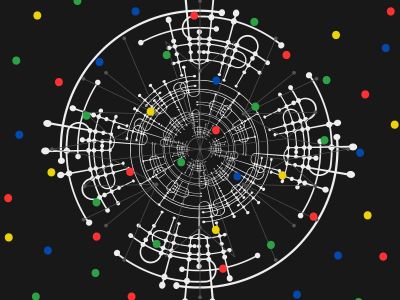Unveiling Common Logical Fallacies: Navigating the Labyrinth of Reasoning

In the intricate realm of critical thinking and persuasive discourse, logical fallacies stand as treacherous stumbling blocks that can undermine the integrity of arguments and cloud rational discussions. These deceptive traps often present themselves as compelling forms of reasoning on the surface, but lack the solid foundation of sound logic. By gaining insight into and identifying a broader array of common logical fallacies, we can sharpen our cognitive acumen, participate in more effective debates, and make well-informed decisions.
Ad Hominem Fallacy
The ad hominem fallacy operates by diverting attention from the core argument, instead attacking the character or personal traits of the arguer. Rather than engaging with the substance of the argument, this tactic seeks to discredit the individual. Recognizing this fallacy enables us to refocus discussions on the ideas themselves, divorcing them from personal attributes.
Straw Man Fallacy
The straw man fallacy involves misrepresenting an opponent's argument to make it easier to attack. This distortion allows the attacker to target a weakened version of the original argument, sidestepping the actual points raised. Critical and fair debate requires addressing the genuine assertions of an argument, not contorted interpretations.
Appeal to Authority
An appeal to authority fallacy occurs when an assertion is deemed true solely because it is supported by an authoritative figure. While expert opinions carry weight, they should be critically evaluated based on provided evidence and reasoning, rather than being accepted blindly.
False Dilemma Fallacy
The false dilemma, or black-and-white, fallacy presents a situation as having only two possible outcomes, ignoring the complexity of real-world scenarios. Recognizing that choices often extend beyond binary options is essential for nuanced and accurate decision-making.
Hasty Generalization
Drawing sweeping conclusions from inadequate or unrepresentative evidence characterizes the hasty generalization fallacy. A well-rounded understanding requires a broader range of data to arrive at valid and reliable conclusions.
Appeal to Emotion
The appeal to emotion fallacy manipulates using rhetorics to appeal to feelings to win an argument, bypassing the need to address the argument's logical merits. While emotions play a role in communication, they should not replace substantive evidence and reasoning.
Circular Reasoning
Circular reasoning, aka circular logics and closely relate to begging the question, assumes the argument's conclusion within its premises. This fallacy essentially restates the assertion without offering genuine evidence or support.
Post Hoc Fallacy
Attributing causality to events based solely on their temporal order characterizes the post hoc fallacy. True causal relationships require thorough analysis, and correlation does not necessarily imply causation.
Slippery Slope Fallacy
The slippery slope fallacy predicts that one event will inevitably lead to a series of negative consequences, often without substantiating evidence. Critical evaluation of causal relationships is necessary to avoid overestimating the potential outcomes.
Appeal to Ignorance
The appeal to ignorance fallacy asserts that a proposition must be true because it hasn't been proven false, or vice versa. Absence of evidence is not evidence of absence, and conclusions should be drawn based on available evidence, not on the lack thereof.
Understanding these additional logical fallacies expands our cognitive toolkit, empowering us to navigate complex arguments and discussions with heightened clarity and accuracy. By detecting and addressing these common pitfalls, we can foster a culture of robust reasoning and elevate the quality of our intellectual engagements. Armed with the ability to decipher the subtleties of logical fallacies, we can confidently traverse the labyrinth of thought, ensuring that our perspectives and decisions are grounded in genuine rationality.









